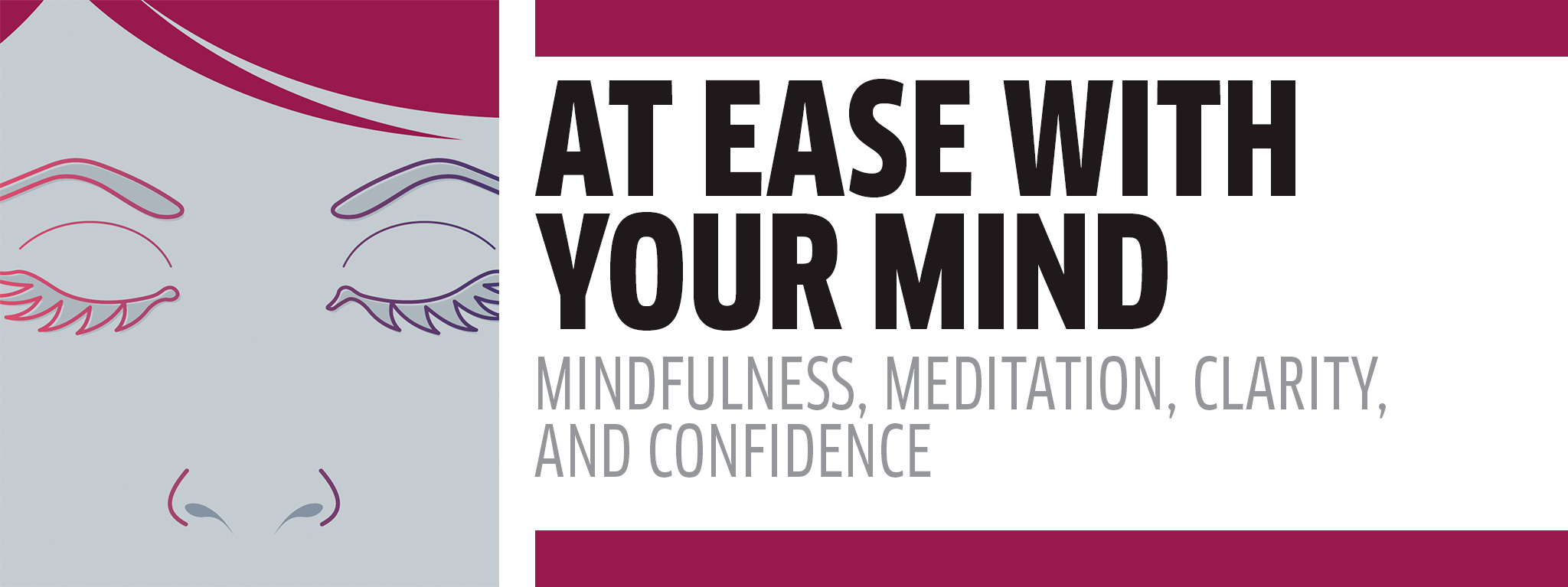
When you’re committed to a certain path, you need to feel good about what you’re doing—and also why you’re doing it. If you cultivate mindfulness, you may find that the “why” becomes easier to see.
Mindfulness has long been a tradition in various religions and spiritual practices, but new research is finding that it has good scientific support as well. Mindfulness is a skill we can use at any time, but one of the best ways to practice it is through meditation, which you can incorporate into your routine.
What does meditation have to do with success? An increasing body of research suggests that it can have considerable power in helping us develop self-awareness, self-esteem, and the ability to cope with and recover from the inevitable knocks of life. Doctors and psychologists are increasingly interested in what the World Health Organization calls “a state of complete physical, mental, and social well-being, and not merely the absence of disease and infirmity”—and in that model, meditation is considered a “health behavior.”
Choose the practice for you
There are many different meditation practices; we’ll explain two of the most common here (see “Mindfulness meditation” and “Loving-kindness meditation,”). You may like to experiment with different kinds of meditation: if sitting still or finding time is a problem, for instance, walking meditations may be easier to fit into your daily routine. If you choose to explore further, the internet has a wide variety of exercises, visualizations, and practices you can search through and adapt to suit. Try them and see which practice works best for you.
 Mindfulness meditation
Mindfulness meditation
Mindfulness is a relaxed and nonjudgmental state of mind that allows us to observe calmly and accurately, which can make all the difference when we’re facing a tough decision or coping with a setback. This is a classic meditation to help you develop the skill:
1 Choose somewhere where you won’t be interrupted, and sit in a comfortable position. You don’t need absolute silence; part of the practice is to let yourself be untroubled by background noise.
2 Close your eyes, relax, and let yourself feel your body. Notice how your feet feel in your shoes, how your body feels against the chair, the temperature of the air on your skin. Just notice these things; you don’t have to do anything about them.
3 Don’t worry if your mind wanders: it will wander, and it doesn’t mean you’re doing it wrong. If thoughts start popping up, just notice they’re there. Don’t follow these thoughts, don’t fight them; let them come and go. This is one of the key experiences of mindfulness: by letting yourself experience thoughts and feelings without leaping to react to them, you’re cultivating emotional awareness and resilience.
4 Notice your breathing. Can you feel your breath cooling and warming under your nose, the rise and fall of your chest, the passage of air down your throat? Focus on this, letting distractions happen and pass. You don’t have to change the rhythm of your breathing if you don’t want to: just notice it.
5 Sit like this for 5 to 10 minutes. When you’re ready, bring your attention back to your whole body; this will recenter you, and make you more aware when you open your eyes again.
6 Finish your meditation, and congratulate yourself. There’s no “right” way to do it: whether you were focused or distracted, it was still a successful exercise.

 Loving-Kindness meditation
Loving-Kindness meditation
Life inevitably holds moments of frustration, and conflicts with other people often hold us back. To help cultivate a more positive attitude, try this traditional meditation:
1 Sit yourself comfortably, relax, and experience the sensations in your body. Focus particularly on your “heart center,” the area around your chest and solar plexus.
2 Cultivate a feeling of kindness and compassion, and direct it toward yourself. Silently repeat phrases such as, “May I be well,” “May I be happy,” “May I be healthy and well,” and “May I live in joy and peace.”
3 Next, think of someone you like or admire. Direct your feelings of kindness toward them, and wish that they may also be well, happy, healthy, and joyful.
4 Direct your loving-kindness to someone to whom you have no strong feelings. Wish them the same joy.
5 Think of someone you have difficulty liking (but not someone you absolutely hate, as this will distract you), and direct your loving-kindness toward them.
6 Expand your sense of well-wishing out toward everyone in the world.

 Finding time to meditate
Finding time to meditate
We live busy lives these days, so how do we fit meditation in? First, we needn’t do it for too long—20 minutes is ample, and if that’s not possible, a shorter meditation is still better than none. Second, we can optimize our time. Health psychologist Linda Wasmer Andrews recommends the following times of day:

The four principles
A 2013 study for The Journal of Positive Psychology found that people who meditate had strong self-esteem if they developed the four key facets of mindfulness, which are as follows:
1 Nonreactivity. You feel what you feel, but you don’t jump to act on that feeling.
2 Awareness. You know what you feel; these feelings are not suppressed.
3 Labeling and expressing. You’re able to describe your feelings accurately.
4 Nonjudging of experience. You know what is happening, but you don’t have to call it “good” or “bad”: it just is what it is.
Mindfulness at work
The benefits of meditation aren’t merely personal. A 2008 study for the Academy of Management found that people who practiced mindfulness experienced many positive benefits in the workplace. These people were:
- More aware of what was happening on the job, picking up on details and subtle social cues
- Better able to get along with their colleagues
- More flexible and spontaneous
- More at ease
- More realistic in their goals
- More empathic and responsive to others; less self-centered
- Less focused on material gain
- Less dependent on validation from others
- Better able to derive their sense of meaning in life from more sources than just their job
- More level-headed under stress
- Enjoying their work more
- More adaptable
- More likely to feel that new situations presented a challenge, not a threat.
The evidence is that mindful people are healthier, happier, and better collaborators—all great advantages in your quest for success.

 Health benefits
Health benefits
Studies find that meditation can support our physical health. It can:
- Help us maintain good exercise habits
- Reduce risky behaviors, such as excessive drinking and drug-taking
- Enhance the functioning of the immune system
- Improve our ability to manage pain
- Reduce inflammation at a cellular level
- Develop our self-control
- Improve cortical thickness in the areas of the brain related to attention and focus.
 barriers to practicing mindfulness
barriers to practicing mindfulness
If you don’t feel like trying mindfulness, can you identify a strong reason why not? A 2011 study listed the most common objections:
I can’t stop my thoughts.
I am uncomfortable with silence.
I can’t sit still long enough to meditate.
I prefer to be accomplishing something.
Meditation might be boring.
It is a waste of time to sit and do nothing.
I don’t know much about meditation.
Prayer is my form of meditation.
There is no quiet place where I can meditate.
I don’t have time.
There is never a time when I can be alone.
I wouldn’t know if I were doing it right.
I’m concerned meditation will conflict with my religion.
My family would think it was unusual.
I would feel odd meditating.
I don’t believe meditation can help me.
I wonder if meditation might harm me.
The researchers found that these barriers were rather effective at discouraging people. If you want to give meditation a try but feel uncomfortable, consider which of these objections sound familiar. If you can suspend your belief in them, even briefly, it might make space in your life to experiment.
